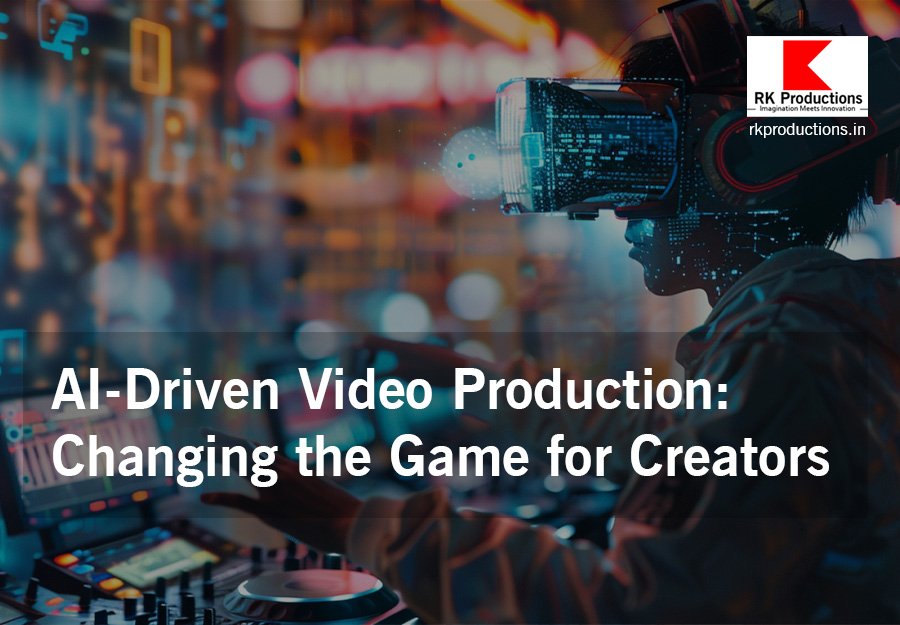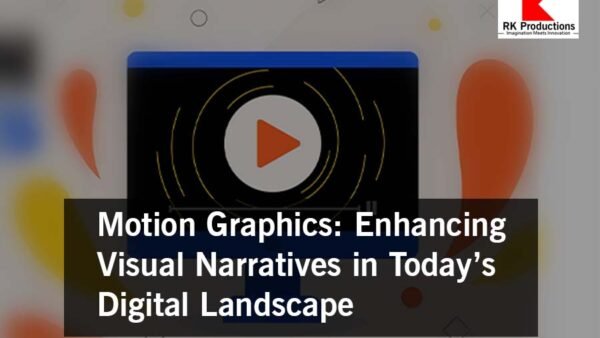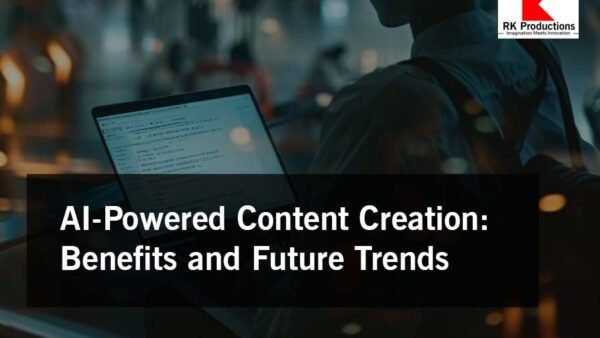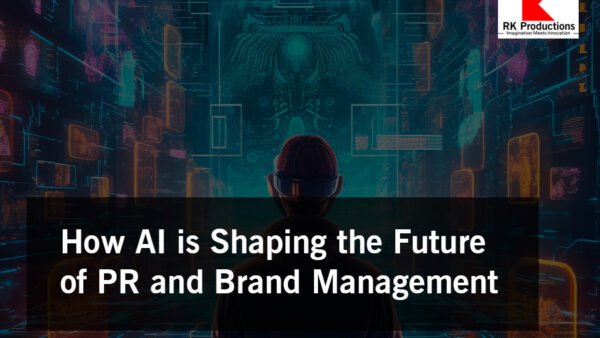The rise of artificial intelligence (AI) is transforming various industries, and video production is no exception. For content creators, AI is not just a buzzword; it’s a game-changer, revolutionizing how videos are conceptualized, produced, and distributed. In a world where video content is king, AI-driven tools are empowering creators to streamline production processes, elevate the quality of their output, and engage audiences like never before. Let’s explore how AI is reshaping the video production landscape.
AI-Powered Video Editing: Speed and Efficiency
Gone are the days when editing a video required hours of painstaking work, scrolling through footage, applying transitions, and manually adjusting color corrections. AI-powered video editing tools, like Adobe’s Sensei and Magisto, have made these processes nearly automatic. These tools can analyze a video’s content, understand its narrative, and provide smart recommendations for edits.
For instance, AI can automatically select the best footage, apply music, and even suggest the perfect color grading, saving creators hours of effort. This democratization of editing means that even creators without formal editing skills can produce professional-looking content. The efficiency AI brings to editing is unmatched, allowing creators to focus more on storytelling and creativity rather than the technical aspects.
Personalized Content Creation: Tailored for Every Audience
One of AI’s most significant contributions to video production is its ability to create personalized content. Through data analysis, AI can determine what type of videos perform best with specific audiences. Platforms like YouTube and TikTok already use AI to recommend personalized videos based on user behavior, but now AI is helping creators on the production side.
By analyzing data on viewer preferences—such as video length, style, and even subject matter—AI-driven tools can help creators tailor their content to specific demographics. This level of personalization enhances audience engagement and helps creators produce videos that resonate deeply with their target viewers, increasing the likelihood of viral success.
AI-Generated Animations & Visual Effects: Simplifying the Complex
Creating high-quality animations and visual effects (VFX) used to require advanced skills and expensive software. However, AI is changing that. With tools like DeepMotion and Runway, even novice creators can now produce sophisticated animations and VFX with just a few clicks. These tools can automatically generate realistic motion capture or apply complex visual effects that were once the domain of professional studios.
AI simplifies the creation of motion graphics, making it accessible for all creators to add dynamic elements to their videos. This not only enhances the visual appeal but also opens up new creative avenues for storytelling.
Voiceovers and Dubbing: AI Voices Sound More Human
AI is also transforming the world of voiceovers. Traditionally, creators needed to hire voice actors for narration or dubbing, which could be both time-consuming and expensive. Today, AI-driven voiceover tools like Synthesia and Respeecher can generate lifelike voices that mimic human emotion, intonation, and tone.
What’s more, these AI tools can dub videos in multiple languages, allowing creators to expand their reach to global audiences without hiring multiple voice actors. As AI-generated voices become more realistic, creators can produce multilingual content quickly and affordably.
Pre-production Made Easy: AI in Storyboarding and Scriptwriting
Pre-production, which includes tasks like storyboarding, scripting, and conceptualizing scenes, is often one of the most time-consuming stages in video production. AI tools are streamlining this phase as well. Tools like Jasper AI and ChatGPT assist creators in scriptwriting, helping them craft compelling narratives with the click of a button.
Additionally, AI-powered platforms can generate storyboards based on a simple description of the scene. By automating these creative tasks, AI allows creators to focus more on refining their ideas rather than getting bogged down by the mechanics of storytelling.
Smarter Distribution: AI Optimizes Content Delivery
Once a video is created, distributing it effectively is crucial to its success. AI plays a key role here by analyzing audience behavior and engagement data to determine the optimal times to release content. AI tools can predict which platforms will generate the most traction, helping creators maximize their reach.
Moreover, AI helps with content optimization, ensuring videos are tailored for different platforms, whether it’s YouTube, Instagram, or TikTok. By using predictive analytics, AI helps creators forecast the success of their videos, guiding decisions on format, length, and even subject matter.
Democratizing Video Production: Empowering Every Creator
One of the most significant impacts of AI-driven video production is that it levels the playing field for creators. Historically, producing high-quality video content required expensive equipment, advanced skills, and significant manpower. AI tools, however, have made it possible for solo creators or small teams to produce videos that rival the quality of major production studios.
For instance, with AI-powered platforms, a single creator can generate professional-grade animations, edit videos, and add soundtracks—all without needing a full production crew. This democratization of video production means that anyone with a creative vision can now bring it to life, regardless of their technical abilities.
The Future: Fully AI-Driven Video Production?
As AI continues to evolve, it’s not hard to imagine a future where entire videos are generated by AI. Virtual influencers, AI-generated actors, and deepfake technology are already pushing the boundaries of what’s possible. We’re entering a new era where AI may soon create entire video narratives, complete with lifelike characters and environments, with minimal human input.
However, as AI’s role in video production grows, so do the ethical considerations. Issues like deepfakes and AI-authenticity are hot topics in discussions about the future of video content. Creators will need to navigate these challenges carefully to maintain the integrity of their work.
Conclusion: AI is Revolutionizing Video Production
AI-driven video production is fundamentally changing how creators approach their craft. From automated editing to personalized content creation, AI is streamlining processes, enabling innovation, and lowering the barriers to entry for aspiring creators. As AI continues to advance, the future of video production looks incredibly promising, with endless possibilities for storytelling, creativity, and audience engagement.
For creators, the message is clear: Embrace AI or risk being left behind.






